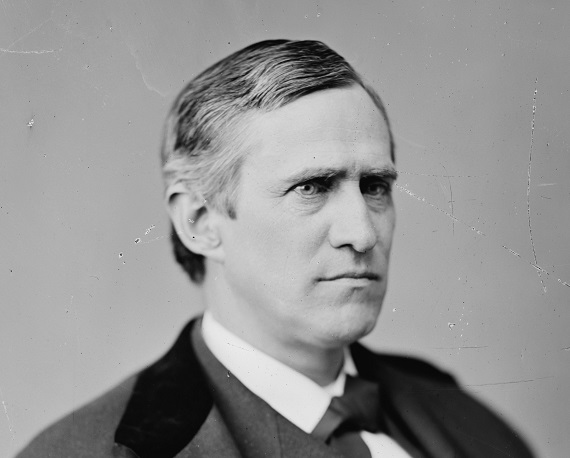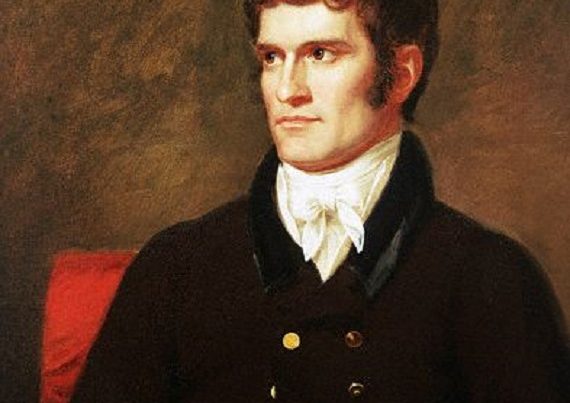Yesterday (October 29) was Thomas F. Bayard, Sr.’s birthday, the next to last member of the great Bayard congressional dynasty from Delaware. His great-grandfather, Richard Bassett, signed the Constitution. His grandfather, James A. Bayard, the elder, served in both the House of Representatives and the Senate and cast the deciding vote for Thomas Jefferson in the 1800 election. His uncle, Richard H. Bayard, served in the Senate and as charge d’affaires to Belgium. His father, James A. Bayard, the younger, served in the Senate and resigned his seat in 1864 due to his manly opposition to the Lincoln administration but later accepted another appointment in time to cast a negative vote in the Andrew Johnson impeachment trial. Thomas F. Bayard assumed his father’s seat in 1869 and was one of the more vocal opponents of radical reconstruction in the Senate.
His speeches were thorough, pointed, and sagacious. The Southern delegation respected Bayard for good reason. He was one of them, a man who understood the Republican regime to be the antithesis of American political principles. Below is a sampling of his work. Happy birthday Mr. Bayard.
“The ruling party in the North seem like insane men and a large party follow them applauding their excesses no matter how frantic or degrading. What can a statesman or a philosopher do with such people?” 1866
“I do not propose to discuss the condition of the people of these three Southern States so-called. I could not trust myself to do it and run through the dreary, wretched catalogue of wrongs to which they have been subjected.” 1869
“Senators of the Radical Party…the South was down and when she was down you struck her. Your blows were foul blows, and were not given in a fair fight. All Christendom cried shame upon you as you inflicted them….” 1870
“Of all exhibitions of human selfishness, of all short-sighted human selfishness that I have ever known in my life, that which I have witnessed in the past four weeks has exceeded all. What has it been? A mere scramble for different interests rushing down here in the closing weeks of a session, each man anxious and willing to thrust his portion of public burden from his own shoulders, and pointing out the convenient back of some neighbor on whom it might rest.” 1870
“I have never believed…that the Southern States have any chance on God’s earth before the Congress of the United States unless they completely submit themselves to the will of the dominant party.” 1871
“If one tenth of the oppression, extortion and outrage were inflicted upon the people of Massachusetts by their officials…there would be a violent and bloody outbreak against it.” 1871
“What powers under the Constitution can be found to authorize the Congress of the United States to enter the States and take into their hands every domestic institution which is covered by this bill? The school, the house of public entertainment, the means of common carriage, the place of amusement, even Sir, the grave itself is not kept sacred for independent wish….All is to be held in the grasp of Federal power….You are seizing into the hands of the Federal power the entire police control of the States.” 1872
“Legislation by Congress seems day by day to be assuming the form and shape of mere military orders.” 1872







